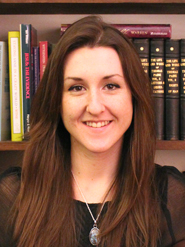No – A Ministry Community is Not a Place for Humanists

AHA Executive Assistant Meghan Hamilton makes a case for including the Yale Humanist Community in other types of community groups, just not religious ones.
Earlier this month, the Yale Humanist Community’s application for membership in the Yale Religious ministries was denied. This decision has caused some controversy in the Humanist community. Should the humanist group be denied inclusion in the ministry community? I would lean towards yes.
Let’s begin by looking at the guidelines the Yale Religious Ministries program has laid out for their applicants. As is stated in the application agreement, the group leader must “affirm that the religious organization I represent on campus is recognized by a faith community and acknowledged by the University Chaplain, to both of whom I will be accountable.” As humanists, atheists, agnostics, and/or non-believers, we have identified ourselves as possessing a lack of religious belief, no organization of religion, and we are not now, nor have ever been recognized by the religious community as a religious group; primarily because we are not religious, and do not seek to establish humanism as a religion. There are guidelines in life that prevent us from things we want. As humanists, this is one of those things.
It is not unusual that a group, such as humanists, have the desire to belong to a community that promotes unity of conflicting beliefs such as one comprised of religions. Humanist groups tend to get stuck in the areas between. Humanism is not a religious belief but we are established and motivated because of the presence of religion, leaving us with the desire to have our non-belief recognized. A ministry community, however, is not the place for humanists. The ministry community at Yale was established and is dedicated as a community of a wide variety of beliefs that all have one thing in common: belief in a God. Yale University students have established countless groups and organizations that are all categorized appropriately under the areas in which they relate. These organizations are labeled under their corresponding areas of interest consisting of: Academics, Arts, Athletics, Communications, Competition, Culinary, Cultural, GLBT, Greek Life, Performance, Political/Government, Religious, Service/Community, and Special Interest.
 I question why the Yale Humanist Community sought acceptance into the religious community rather than those of the Political, Cultural, or Community groups. Would it not makes more sense to incorporate ourselves into a community of people working toward similar goals and values; civil liberties, community, freedom of expression, free thought, individuality, academia, constitutionality, etc.? In fact, the Yale Humanist Community chose upon the community with the narrowest vision: promotion of religion and religious unity.
I question why the Yale Humanist Community sought acceptance into the religious community rather than those of the Political, Cultural, or Community groups. Would it not makes more sense to incorporate ourselves into a community of people working toward similar goals and values; civil liberties, community, freedom of expression, free thought, individuality, academia, constitutionality, etc.? In fact, the Yale Humanist Community chose upon the community with the narrowest vision: promotion of religion and religious unity.
Humanists have the right to belong to a community; that is for sure. Our community of humanists, atheists, and other nonbelievers has a place in American culture and society and should be considered as legitimate and important as those of religious affiliation. But, as we have established ourselves as promoters of social progression, the religious realm is not that place. Joining a ministry, a community of people where religious belief is required for membership, is counterproductive to our cause, which is ultimately exemplifying that one can be good without a god.
This is, as we all know, not the first, and certainly will not be the last time nonbelievers will be regarded as an unwelcomed presence in the religion world. This is not surprising considering we pose a threat to their entire belief system and historical significance. But we carry the burden; we believe something that is generally frowned upon (at least for now), accompanied by countless negative implications, and in a country that tends to be a bit behind in forward thinking and progressiveness.
So now what? We continue promoting humanism, atheism, reason, logic, science, expansion of the mind, and freethought. We promote it as it is–a belief in science, compassion and humanity. Day in and day out we show others that morality does not go hand in hand with God; that compassion, love, community, and happiness can exist without a god in the public or the political sphere. We should look at exclusion from such groups as a motivator and reason to do the work we do. And don’t worry; religious groups and institutions will continue to recognize us even when excluded from their community.
